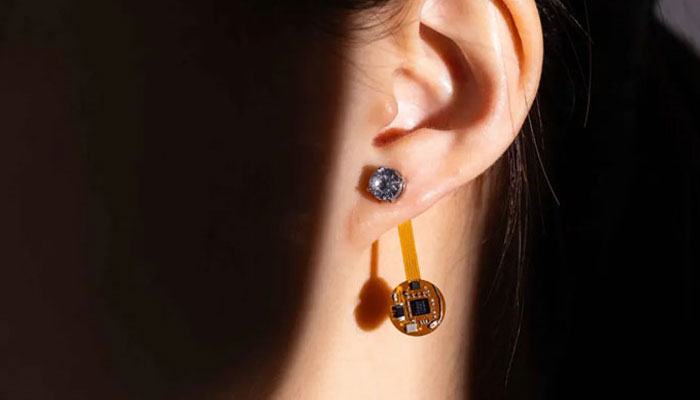Bauble: thermal earrings with built-in Bluetooth that can measure skin temperature
The earring enters a power-saving mode as soon as it detects the temperature
In a scientific marvel, researchers from the University of Washington have created thermal earrings called "Bauble" that can measure skin temperature, New York Post reported.
According to the UW study, the baubles are "first-of-its-kind smart earring that enables a reliable wearable solution for continuous temperature monitoring."
Every earring contains an antenna, two temperature sensors, a built-in Bluetooth chip, and a 28-day battery life. The high-tech earrings measure 11.3 x 31 x 335 millimetres and weigh 335 milligrammes.
The temperature sensor is connected to the ear by an embellished magnetic clip, and the room temperature is measured by a second sensor with a resin fashion design.
The earring enters a power-saving mode as soon as it detects temperature, making sure the 28-day battery life is utilised effectively.
"The earrings would sense activity and health metrics such as temperature and heart rate," Qiuyue Shirley Xue, a computer science and engineering doctoral student at UW explained, "while a necklace might serve as an electrocardiogram monitor for more effective heart health data."
Researchers from the University of Washington think that the positioning of the earring allows it to measure body temperature more accurately than smartwatches.
In contrast to watches and other wearables, which are more loosely worn, "thermal earrings take advantage of the unique position of earrings in proximity to the head, a region with tight coupling to the body," the research explained.
Over time, fitness-tracking equipment has grown in popularity among health enthusiasts. And while the devices can be beneficial to your fitness journey and goals, they could also be negatively affecting your life.
-
Annular solar eclipse 2026: Where and how to watch ‘ring of fire’
-
Scientists discover rare form of 'magnets' that might surprise you
-
Humans may have 33 senses, not 5: New study challenges long-held science
-
Northern Lights: Calm conditions persist amid low space weather activity
-
SpaceX pivots from Mars plans to prioritize 2027 Moon landing
-
Dutch seismologist hints at 'surprise’ quake in coming days
-
SpaceX cleared for NASA Crew-12 launch after Falcon 9 review
-
Is dark matter real? New theory proposes it could be gravity behaving strangely












